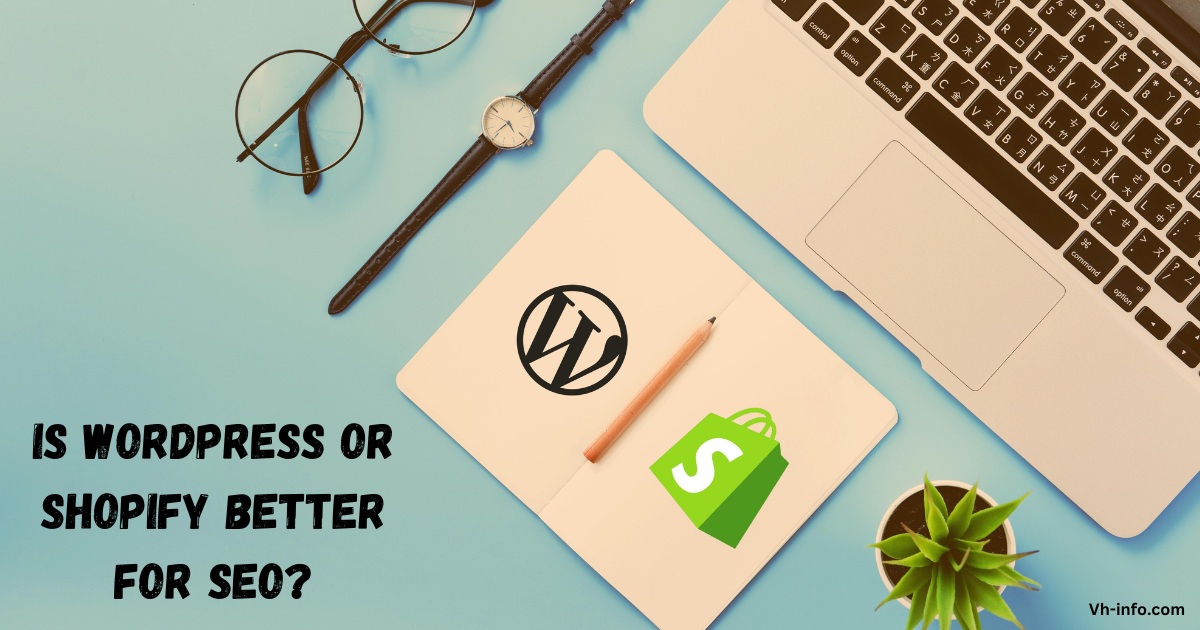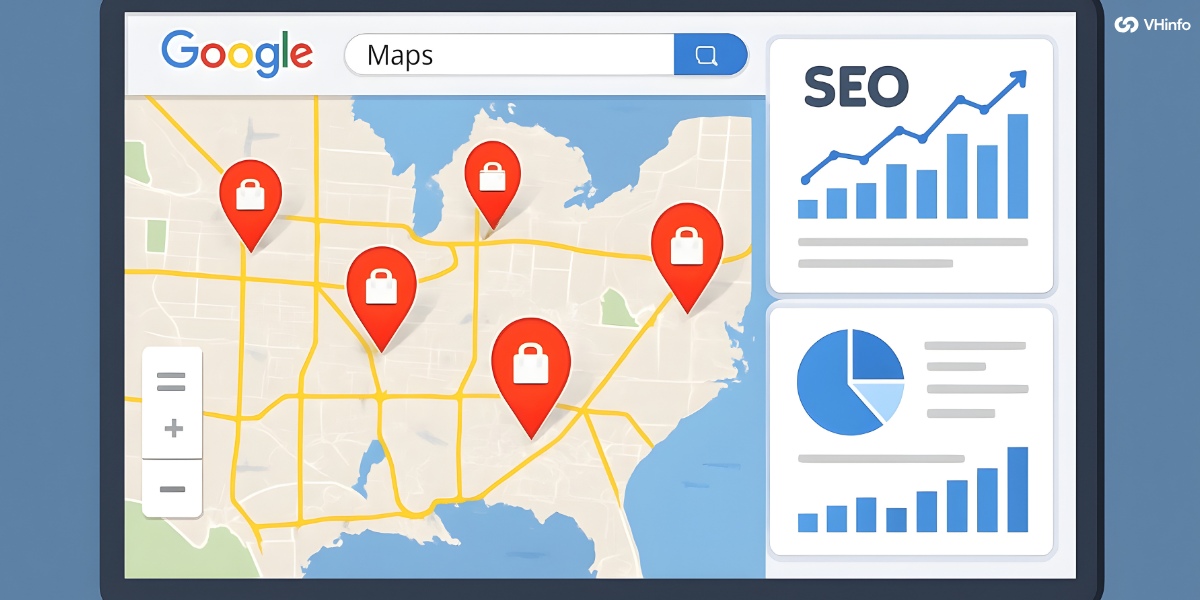When launching an online store, choosing the right e-commerce platform is important for SEO success. Shopify and WordPress are two leading options, each with unique strengths.
VH Info is here to break down the Shopify vs WordPress SEO debate to help you make an informed choice for your e-commerce store.
Why is SEO Optimization Matter (Especially For Online Business)?

Effective SEO helps your e-commerce store rank higher in search engine results, driving more organic traffic and sales.
Optimizing your online shop for relevant keywords makes it easier for your target audience to find you. With the majority of online experiences beginning with a search engine, appearing on the first page is essential for e-commerce success.
Shopify Vs. WordPress SEO: An Overview
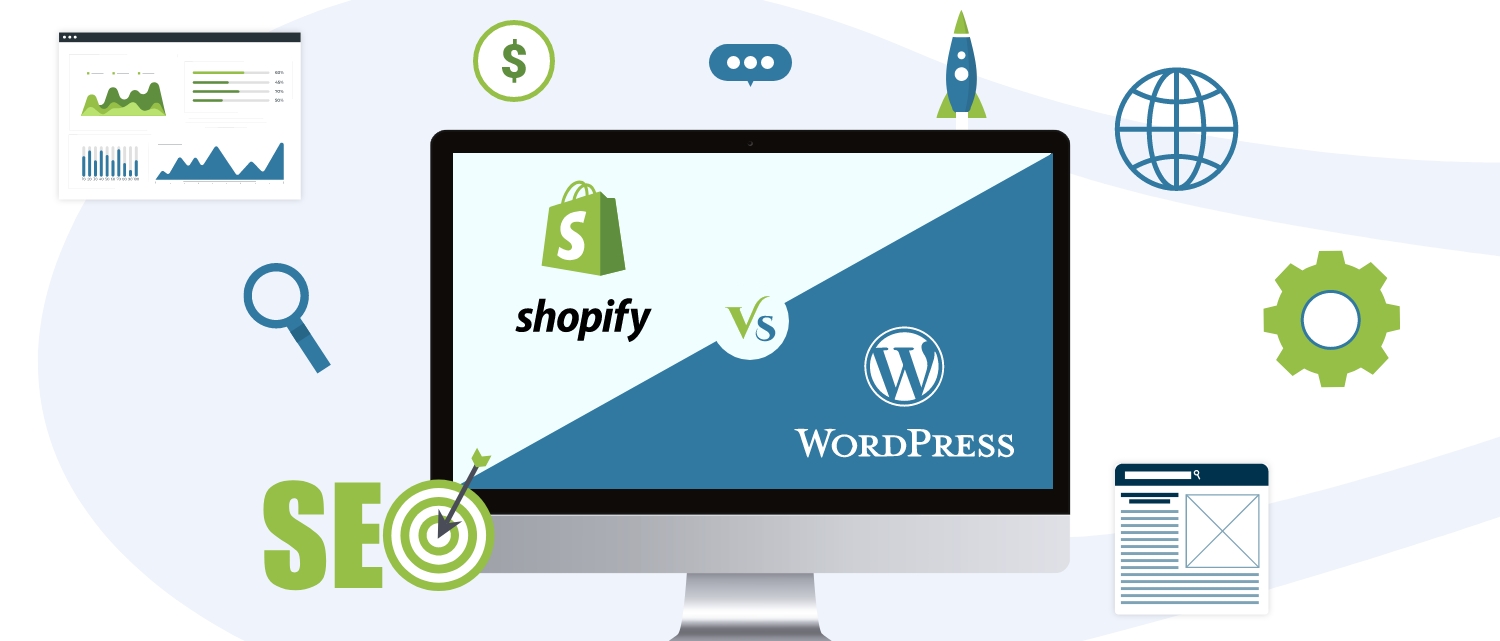
A) Shopify SEO:
Shopify is an all-in-one e-commerce solution known for its ease of use. It offers built-in SEO features like customizable title tags, meta descriptions, and URLs. Shopify’s app store also provides various SEO apps to extend functionality. With fast site speed and SSL certificates included, Shopify makes technical SEO simple for online store owners. Custom Shopify websites can take these built-in features further by aligning design and structure with specific SEO strategies and branding needs.
B) WordPress SEO:
WordPress is a flexible content management system powering over 40% of websites. Its extensive range of SEO plugins, like Yoast SEO, enables deep optimization. The Yoast SEO plugin offers features like keyword optimization, XML sitemaps, and breadcrumbs. As an open-source platform, WordPress provides full control over your ecommerce store’s SEO.
Shopify Vs. WordPress SEO – The Complete Details
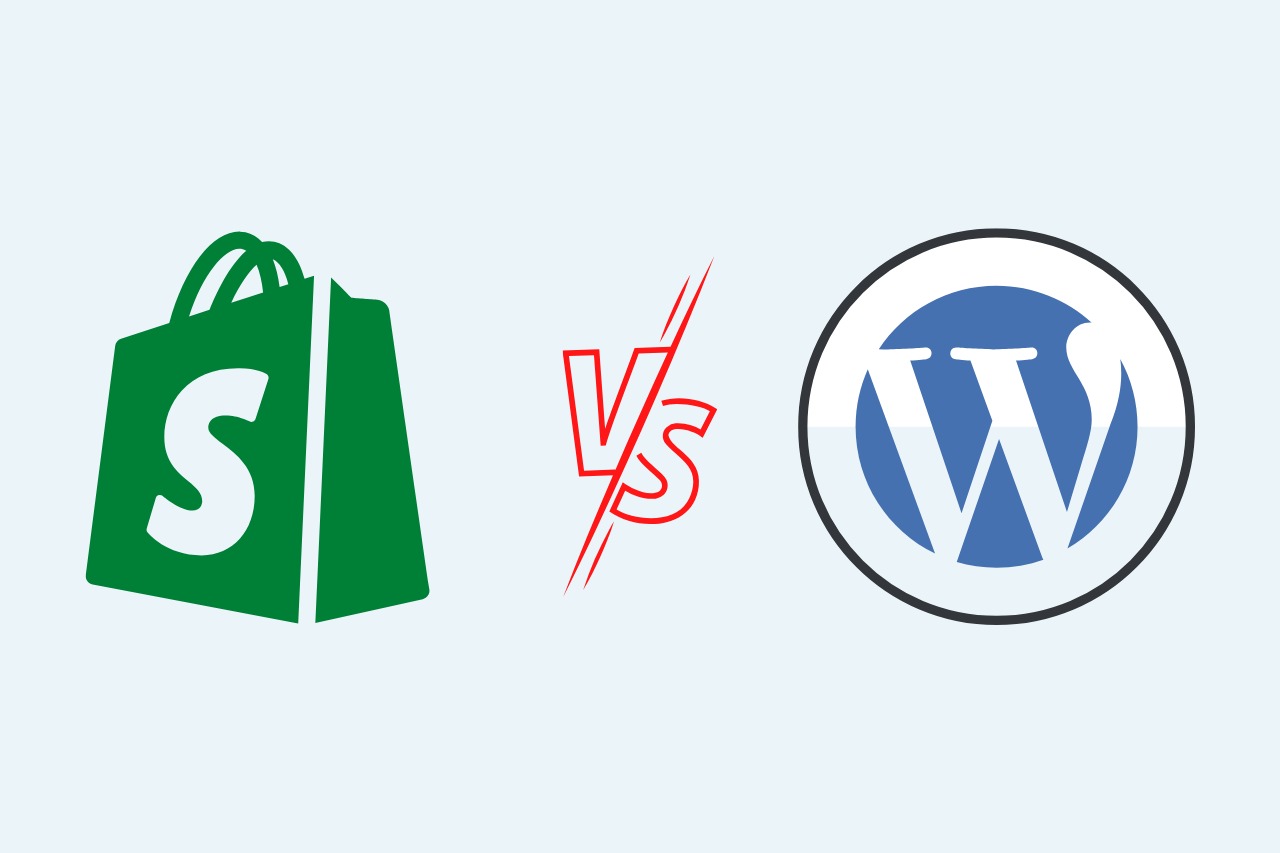
A. Pros of Shopify SEO:
- User-friendly interface ideal for beginners
- Fast site speed for better user experience and SEO
- Automatic sitemap generation and SSL certificates
- Robust selection of SEO apps in the Shopify app store
- Optimized themes for mobile-friendliness
B. Cons of Shopify SEO:
- Less control over technical SEO compared to WordPress
- Limited blogging features which can hinder content marketing
- Rigid URL structure with fewer customization options
- Some advanced SEO features require paid apps
- Pricing plans can be expensive for small businesses
C. Pros of WordPress SEO:
- Unmatched flexibility and customization for SEO
- Powerful SEO plugins like Yoast SEO for comprehensive optimization
- Ideal for content-heavy ecommerce stores with strong blogging
- Full control over your site’s technical SEO and URL structure
- Large community and extensive learning resources
D. Cons of WordPress SEO:
- Steeper learning curve, especially for non-technical users
- Requires more hands-on maintenance and updates
- Site speed can suffer without proper optimization
- Security vulnerabilities if not managed properly
- Overwhelming plugin options require careful vetting
Shopify Vs. WordPress: Why SEO Holds The Key?
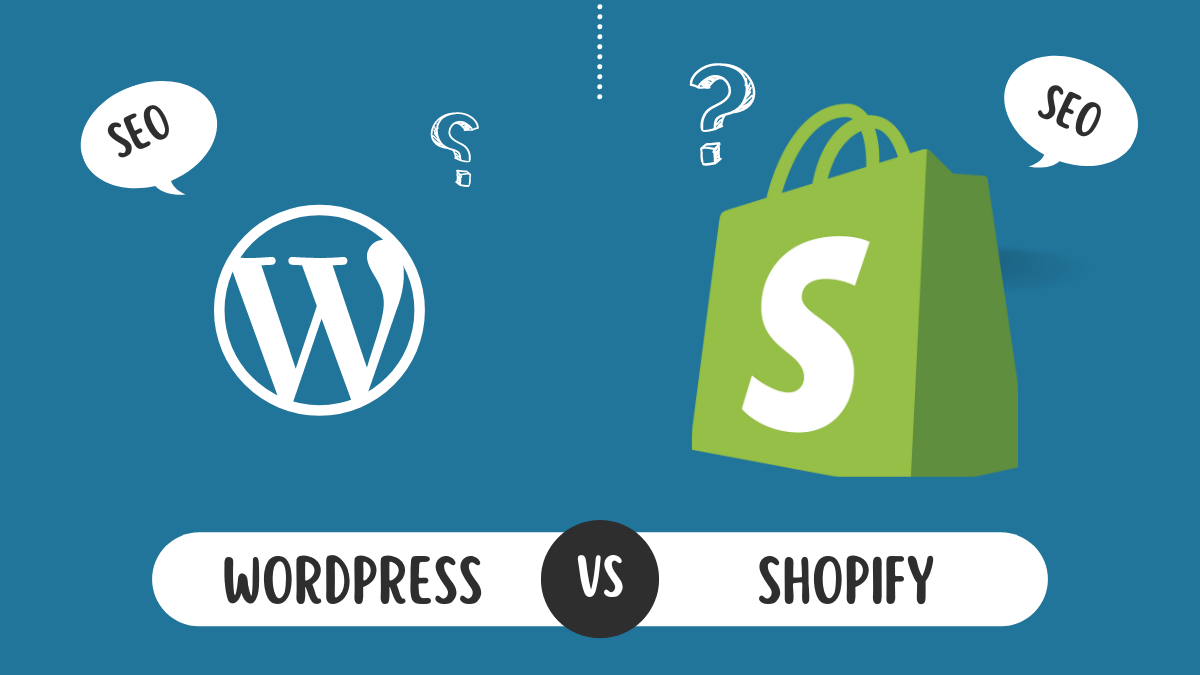
In the battle of Shopify vs WordPress for ecommerce, SEO is a deciding factor. Organic traffic from search engines is a cost-effective way to drive consistent sales. By optimizing your online store for target keywords, you can attract qualified leads actively searching for your products. SEO success translates to higher visibility, credibility, and revenue for your ecommerce business. Also, follow Google trends while creating products for your online store. They provide various shirt styles, including custom T-shirts, tank tops, and sweatshirts. Printful integrates with various e-commerce platforms, such as Shopify and Etsy, enabling you to sell your designs on those platforms. This way you can create pop culture T-shirts that feature trending themes or iconic designs.
How Shopify and WordPress Stack Up?
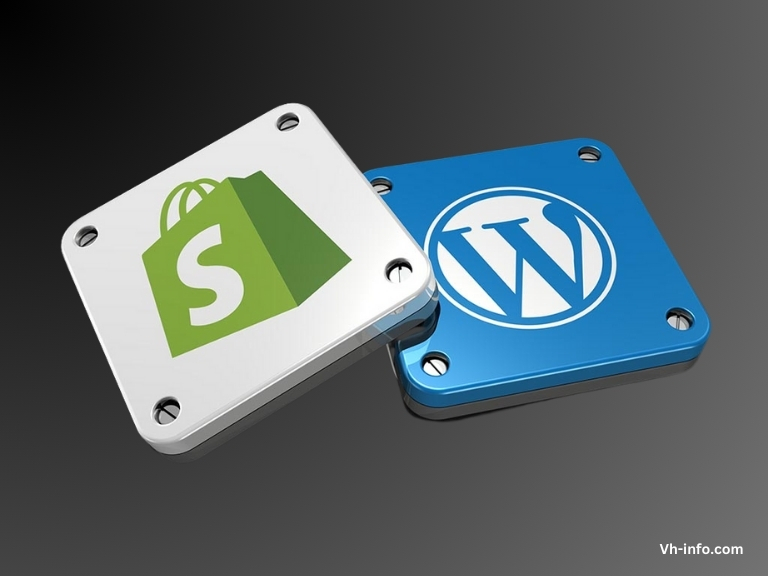
When evaluating Shopify and WordPress, consider factors beyond just SEO:
Transaction Fees
Shopify charges transaction fees unless using Shopify Payments. WordPress has no built-in transaction fees.
Unlimited Products
Both Shopify and WordPress allow unlimited products, but Shopify’s limit increases with higher plans.
Storage
Shopify offers unlimited storage on all plans. With WordPress, storage depends on your hosting provider.
Integrations
Shopify has a large app store, while WordPress boasts 55,000+ plugins for extensive integrations.
Customer Support
Shopify offers 24/7 support via phone, email, and chat. WordPress relies on its community forums and third-party support.
Cost of Shopify Vs. WordPress
Shopify plans range from $29 to $299 per month, with additional costs for apps and themes. WordPress itself is free, but you’ll need to pay for hosting, domain name, plugins, and themes. Costs can range from a few dollars to hundreds per month depending on your needs. Consider your budget when deciding between Shopify and WordPress.
Customer Reviews and Reputation
Both Shopify and WordPress have established reputations and loyal user bases. Shopify is known for its simplicity and all-in-one approach, while WordPress is celebrated for its flexibility and extensive customization options. Research customer reviews and case studies in your industry to see which platform fits your needs best.
Key Things to Watch Out For When Choosing an SEO-Friendly Platform
- Ability to customize title tags, meta descriptions, URLs, and header tags for on-page optimization
- A well-optimized URL structure and simple 301 redirects for maintaining SEO equity
- Mobile customization options for responsive design and page speed
- Powerful internal search feature and proper indexation of internal search results pages
- Good customer support and a savvy technical team to help troubleshoot SEO issues
Top Shopify and WordPress Alternatives
While Shopify and WordPress are popular choices, other ecommerce platforms offer strong SEO capabilities:
- BigCommerce: An all-in-one ecommerce solution with robust built-in SEO features
- Magento: An open-source platform known for its flexibility and scalability
- WooCommerce: A customizable ecommerce plugin for WordPress sites
- Wix: A user-friendly website builder with ecommerce functionality and SEO tools
- Codesi: An AI-powered website builder that creates professional sites in minutes with built-in SEO optimization
Is WordPress Or Shopify Better For SEO?
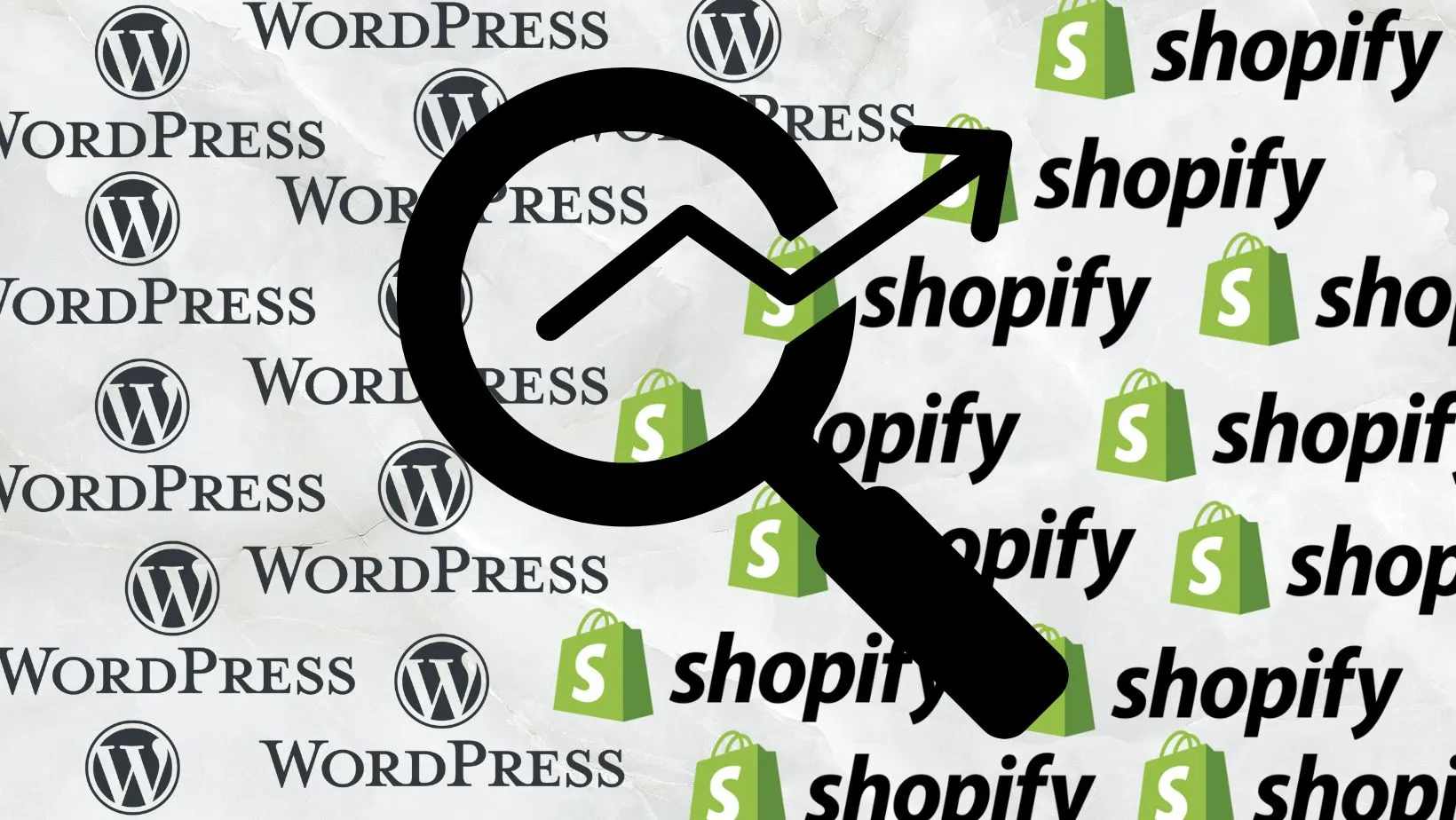
The answer depends on your unique needs and resources. Shopify store may be best if you want a user-friendly, all-in-one solution and don’t mind less control over technical SEO. If you need unlimited customization, have a content-heavy site, or want full control over SEO, WordPress might be the better choice.
FAQ’s:
Is Shopify Better Than WordPress?
It depends on your specific needs. Shopify is easier to use but less flexible, while WordPress requires more technical skill but offers unlimited customization.
Which Platform is Quicker For SEO Improvements?
Shopify can be quicker for making SEO changes, as it has built-in features and apps. However, WordPress can be just as efficient once set up properly with SEO plugins.
Can I Migrate From Shopify to WordPress or Vice Versa Without Losing SEO Ranking?
Yes, you can migrate between platforms without losing SEO. The key is carefully redirecting URLs, keeping site structure consistent, and monitoring for any issues post-migration.
How Do Updates on WordPress and Shopify Affect My SEO?
Both platforms regularly release updates to improve security, performance, and SEO. It’s important to keep your site updated to benefit from these enhancements and avoid potential issues.
Should I use WordPress With Shopify?
You can use WordPress with Shopify by embedding Shopify Buy Buttons or creating a subdomain for your WordPress blog. However, for most users, it’s best to choose one platform as your main ecommerce solution.
Can Shopify and WordPress be used together?
Yes, you can connect Shopify and WordPress, but it’s not necessary. Consider your goals and resources to determine if using both platforms together is right for your business.
Conclusion
In the Shopify vs WordPress SEO matchup, there’s no one-size-fits-all answer. Your choice depends on factors like technical expertise, site complexity, budget, and desire for control. Shopify excels in ease of use and built-in features, while WordPress offers unrivaled flexibility and customization.
Whichever platform you choose, VH Info is here to help you succeed with expert link building strategies for your ecommerce store.
Focus on SEO best practices and leveraging the unique strengths of Shopify or WordPress – with time, you can outrank competitors and drive sustainable organic traffic to your online shop.
